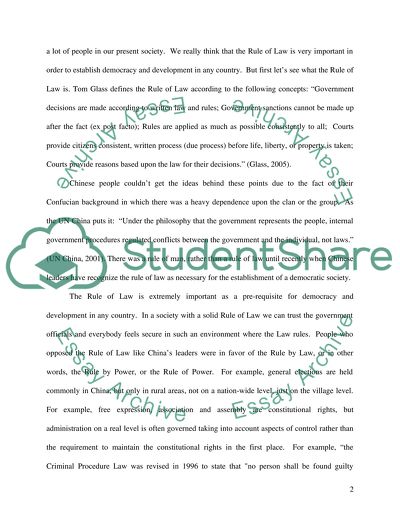Cite this document
(“The Rule of Law Essay Example | Topics and Well Written Essays - 1500 words”, n.d.)
Retrieved from https://studentshare.org/law/1535873-the-rule-of-law
Retrieved from https://studentshare.org/law/1535873-the-rule-of-law
(The Rule of Law Essay Example | Topics and Well Written Essays - 1500 Words)
https://studentshare.org/law/1535873-the-rule-of-law.
https://studentshare.org/law/1535873-the-rule-of-law.
“The Rule of Law Essay Example | Topics and Well Written Essays - 1500 Words”, n.d. https://studentshare.org/law/1535873-the-rule-of-law.


